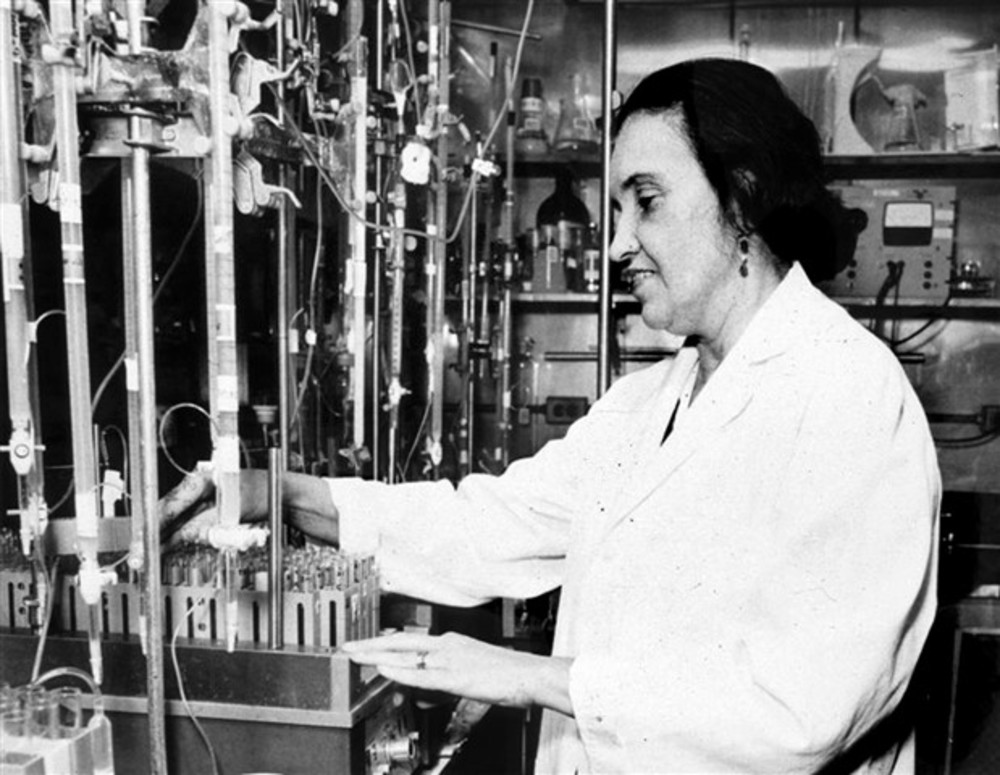American-born Dr. Rosalyn S. Yalow makes history
 Dr. Rosalyn S. Yalow.
Dr. Rosalyn S. Yalow.
“We still live in a world in which a significant fraction of people, including women, believe that a woman belongs and wants to belong exclusively in the home; that a woman should not aspire to achieve more than her male counterparts and particularly not more than her husband …The world cannot afford the loss of the talents of half its people if we are to solve the many problems that beset us.”
– Rosalyn Yalow upon receipt of the Nobel Prize in Physiology or Medicine
“A Jewish woman whose father-in-law is a rabbi, who keeps a kosher home, who invites her lab assistants to Passover Seder (and who made sure that she was home to feed her children lunch when they arrived home from school) … is not the typical image of a Nobel Prize winner. But it is the image of Rosalyn Yalow, the first woman born and educated in the United States to win a Nobel Prize in a scientific field.”
The daughter of immigrant parents who urged her to get the education that had been denied them and to do anything that boys can do, Rosalyn planned to become a teacher until, at age 17, she read a biography of Marie Curie and found her role model. She studied physics at Hunter College. When she was denied entrance to graduate schools because, as one admissions office was honest enough to admit, they believed that she would never get a job in the field, she planned to become a secretary at Columbia University so that she could take advantage of the university’s policy of allowing its staff to take courses. Fortunately, in the summer of 1941 she was accepted to University of Illinois at Urbana, with an offer of a teaching assistantship (most likely because the draft caused low enrollment). In 1947 she was offered laboratory space at the Bronx VA Hospital to explore the use of radioactive substances for the diagnosis and treatment of disease.
This research led to the discovery (with her partner Dr. Solomon Berson, who died in 1972) of radioimmunoassay (RIA), an ingenious application of nuclear physics to clinical medicine that made it possible to use radioactive tracers to measure minute amounts of pharmacological or biological substances with radioisotopes. RIA became a widespread tool for measuring hormones and for diagnosing conditions that had previously been difficult to locate and treat; it garnered Yalow the Nobel Prize in 1976. She continued to work in her modest laboratory in the Bronx until 1991 and then used her prestige to work for improved science education and child care.
Quote Source: Emily Taitz, “Jewish Women in American: An Historical Encyclopedia.”
Editor’s Note: This is part of a series on Jewish women scientists.
TOBY ROSSNER (tobyross@cox.net) was the director of media services at the Bureau of Jewish Education from 1978 to 2002.







